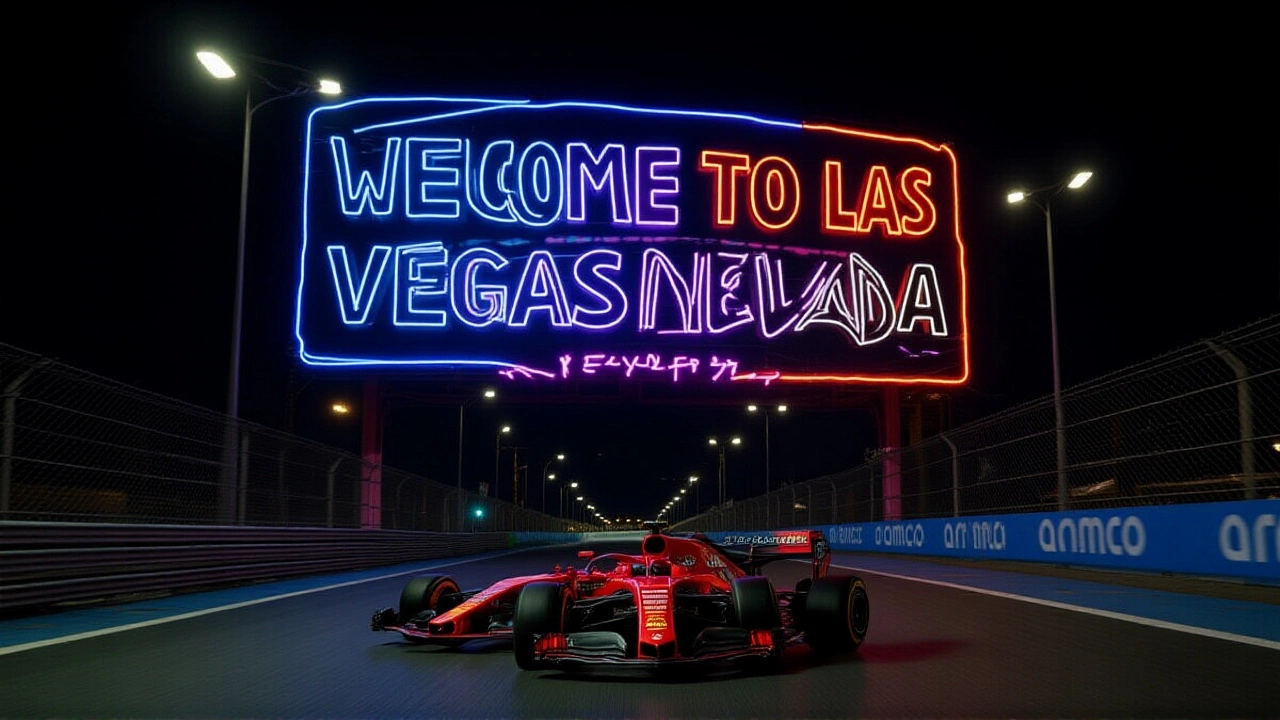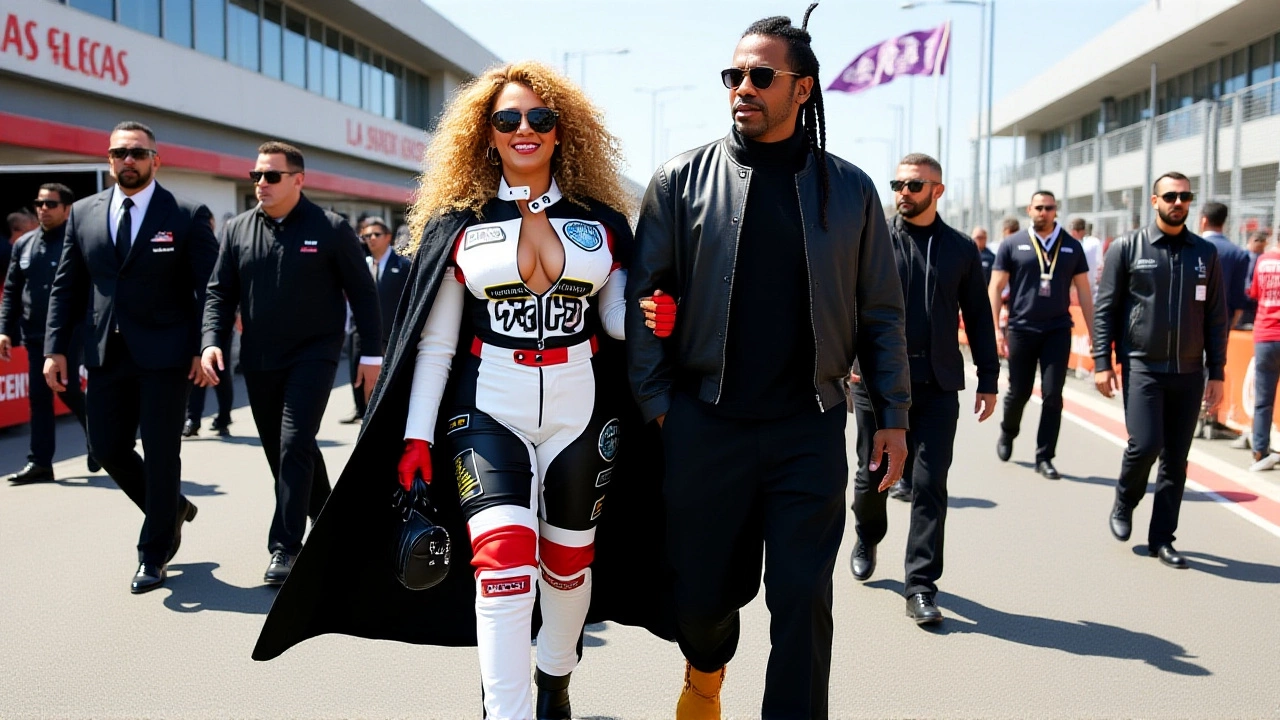When Ferrari N.V. chairman John Philip Jakob Elkann publicly told Lewis Hamilton and Charles Leclerc their performances were "not up to par," he didn’t just stir up a storm—he cracked open the door to a team in crisis. The comments, made on November 20, 2024, came just over two weeks after both drivers failed to finish the Brazilian Grand PrixAutódromo José Carlos Pace in São Paulo, marking the third double retirement for Scuderia Ferrari this season. Neither driver has won a race in 2024. Hamilton, 39, still hasn’t stood on a podium since joining from Mercedes-AMG Petronas. Leclerc, 27, hasn’t won since 2022. And now, the man at the top is talking out loud.
"Talk Less, Drive More" — A Public Reprimand
Elkann’s remarks, first reported by ESPN.com, weren’t whispered in the garage. They were broadcast as part of a broader corporate update. "They need to talk less and focus more on driving," he reportedly said, adding that their performances were "not up to par." The tone was blunt, even for a team known for its intensity. Historically, Ferrari has handled driver friction behind closed doors. Enzo Ferrari himself was famously private, even ruthless—but never public. This shift signals something deeper: panic.Hamilton, a seven-time world champion who joined Ferrari after 11 seasons at Mercedes, has been quietly adjusting to the Italian team’s culture. He’s not one to complain publicly—but he’s not one to take public humiliation lightly either. "I think Lewis has still got to find his way into this team," said Anthony Davidson, former F1 driver and Sky Sports F1 analyst. "That kind of scolding? From the chairman? That would have taken him aback. The top of everybody at Ferrari has publicly criticized Lewis Hamilton’s comments. That’s not how you build trust."
Leclerc’s Response: Loyalty Over Anger
Leclerc, the homegrown talent from Monaco, responded with a carefully worded statement: "We are aligned and I will do absolutely everything in order to bring Ferrari back to the top." His tone was calm, almost reverent. He didn’t mention Elkann by name. He didn’t defend himself. He simply reaffirmed his commitment. It’s a move that speaks volumes. Leclerc knows his future is tied to Ferrari. Hamilton, by contrast, has a contract that expires at the end of 2025—and has already hinted he’s "not looking forward to 2026," according to Sport Bible.That’s the real tension beneath the surface. Leclerc is the heir apparent. Hamilton is the veteran brought in to elevate the team—and maybe, just maybe, to be the bridge to a new era. But if Elkann sees Hamilton as a distraction, and Leclerc as not delivering, who’s left to lead?
Why This Matters Beyond the Track
Ferrari N.V. isn’t just a racing team. It’s a €5.125 billion global brand, listed on the NYSE under ticker RACE. Formula 1 is its most visible marketing machine. The sport’s $135 million cost cap hasn’t stopped Red Bull and McLaren from outpacing them in performance. Ferrari’s 2024 season—zero wins, fourth in the constructors’ standings—is its worst since 2014. And the Interlagos failure wasn’t just bad luck. Both cars retired due to mechanical issues, but the perception is that the drivers aren’t extracting enough from the car.That’s where the real problem lies. The SF-24 is a car that, by telemetry, should be competitive. But it’s inconsistent. Hamilton struggles with tire degradation. Leclerc is fast but makes risky calls under pressure. The team’s engineering staff, led by Benedetto Vigna (CEO) and Frédéric Vasseur (Team Principal), are under pressure to deliver. But Elkann’s public criticism? It doesn’t fix the car. It fractures morale.

The Unspoken Question: Is This the End of an Era?
Ferrari was founded in 1939 by Enzo Ferrari in Modena. It’s built on legacy, passion, and secrecy. Public scolding? That’s more Silicon Valley than Maranello. Davidson put it bluntly: "Why would you do your dirty washing in public? This could have been easily handled in closed doors. I don’t understand why it was a public scolding like that."Behind the scenes, insiders say tensions have been rising since mid-season. Hamilton’s quiet frustration with the car’s handling, Leclerc’s growing impatience with strategy calls, and Vasseur’s attempts to balance both personalities have created a pressure cooker. The Brazilian GP wasn’t the cause—it was the breaking point.
Now, with just one race left—the Abu Dhabi Grand PrixYas Marina Circuit—the team faces a choice: double down on internal reform, or risk losing one of its two drivers before 2025. Hamilton, with his marketability and pedigree, is too valuable to lose. But if he feels disrespected, he won’t stay. Leclerc, loyal as he is, won’t stay if he feels unsupported.
What’s Next?
Ferrari’s leadership will meet in private before Abu Dhabi. Expect a major technical review. Expect pressure on Vasseur to make changes to the car’s setup. But the real test will be whether Elkann apologizes—or doubles down. Because if this is how Ferrari treats its drivers now, they won’t just lose races. They’ll lose legends.Frequently Asked Questions
Why did John Elkann publicly criticize Hamilton and Leclerc instead of handling it privately?
Elkann’s public remarks mark a sharp departure from Ferrari’s historic culture of internal discipline. Analysts believe the move reflects growing frustration over the team’s 2024 performance—zero wins, fourth in the constructors’ standings—and a belief that public pressure might force change. However, former driver Anthony Davidson called it a strategic error, noting that such feedback has always been handled behind closed doors to preserve team cohesion.
How has Lewis Hamilton reacted to the criticism?
Hamilton has not publicly responded to Elkann’s comments, which is typical of his reserved approach. However, insiders say he was visibly shaken by the public nature of the rebuke. As a seven-time world champion accustomed to being treated as a senior figure, the criticism from the chairman—especially after just one season at Ferrari—has raised questions about his long-term future with the team, particularly given his reported reservations about the 2026 season.
What’s at stake for Ferrari in the final race of the 2024 season?
The Abu Dhabi Grand Prix on December 8, 2024, is more than just a season finale—it’s a pressure test for Ferrari’s leadership. A strong result could stabilize morale and signal progress. But another failure, especially with either driver retiring again, could trigger immediate restructuring. With no wins in 2024, the team risks losing sponsor confidence and facing internal calls for leadership changes, potentially affecting CEO Benedetto Vigna and Team Principal Frédéric Vasseur.
Is Charles Leclerc’s loyalty enough to keep him at Ferrari long-term?
Leclerc’s public loyalty is real—but loyalty has limits. He’s signed through 2026, but if Ferrari continues to underperform and leadership becomes toxic, top teams like Red Bull or McLaren may make aggressive offers. Leclerc wants to win, and he knows he’s Ferrari’s best hope. If the organization doesn’t fix its structure, his loyalty may not be enough to keep him from seeking greener pastures after 2025.
Why is Ferrari struggling so badly in 2024 compared to previous seasons?
The SF-24 has suffered from inconsistent aerodynamics and tire management issues, particularly in high-heat races like Singapore and Brazil. While the car is fast in qualifying, it degrades quickly in race trim. The team’s strategy calls have also been criticized as reactive rather than proactive. Combined with the pressure of integrating Hamilton into a tightly knit culture, these technical and cultural challenges have created a perfect storm—something no amount of public criticism can fix.
What does this mean for Ferrari’s brand and financial value?
Ferrari N.V. reported €5.125 billion in revenue in 2023, with Formula 1 playing a critical role in global brand visibility. A winless season threatens that image. Sponsors like Shell, Puma, and Hublot closely monitor racing performance. If Ferrari finishes 2024 without a win, it could impact licensing deals and investor confidence—especially as the company prepares for its 2025 product rollout, which includes new road car launches tied to F1 marketing momentum.
